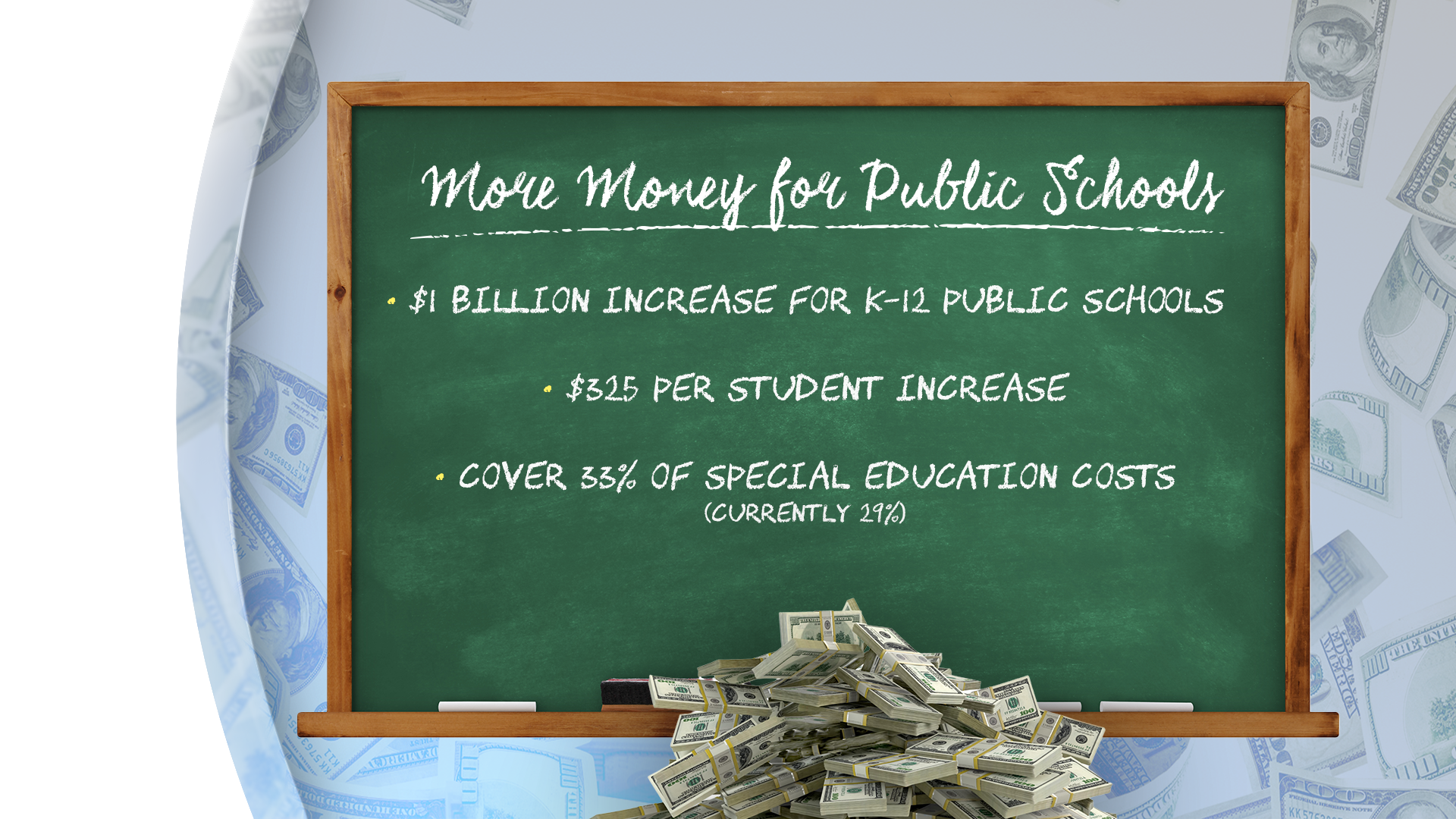'This is a bad deal for public schools': Milwaukee educators blast shared revenue compromise
MILWAUKEE (CBS 58) -- In the massive agreement to boost state funding for local governments, Republican lawmakers, Democratic Gov. Tony Evers and Milwaukee leaders all gave up some things they wanted. But Milwaukee teachers' union officials said Friday they reject the deal in its entirety.
To end a stalemate over whether to allow Milwaukee and Milwaukee County to pursue new and increased local sales taxes, the shared revenue agreement folded in a substantial boost in funding for public and private schools.
At a press conference announcing the deal Thursday, Assembly Speaker Robin Vos said the education component was what got negotiations to the finish line.
"Sometimes, the offer and the opportunity to get wins for things you believe in are so good, you have to change your mind," Vos said. "So, if we would not have the opportunity to have this historic investment in school choice, I probably would've been a 'no.'"
Republicans celebrated the increase in funding for private voucher schools in the Milwaukee, Racine and statewide choice programs.
Currently, K-8 private choice schools get about $8,400 per student. A new bill altering school funding boosts that amount to $9,500 per student.
Private high schools enrolled in the voucher program will go from receiving $9,000 per student to $12,000 per student.
Pro-voucher group, School Choice Wisconsin, estimated the additional funding would allow private voucher schools to open an additional 20,000 seats statewide.
"The current students are funded at only 60% of what public school students are funded," the group's president, Nicholas Kelly, said. "So, this is going to allow for expansion."
Public K-12 schools across Wisconsin will get a total funding increase of more than $1 billion. It adds up to a $325 increase per student.
The state will cover 33% of districts' special education costs; currently, it reimburses districts for 29% of those costs.
Amy Mizialko, president of the Milwaukee Teachers' Education Association, said Friday she was "blindsided" by the agreement.
Wisconsin has a limit on the property taxes school districts can levy. The agreement increases that amount from $10,000 per student to $11,000.
Mizialko said that 10% increase compared to the 33% increase for private high schools felt like an insult.
"The governor should veto [the school funding bill] on its face, and there should be no celebration that some compromise was reached," Mizialko said. "This is a bad deal for public schools."
Evers did not stop to take questions from reporters at a public appearance Friday in Lake Geneva to celebrate Kikkoman soy sauce's 50 years in business.
Mizialko said she also took issue with a Republican reading bill that was introduced Friday. The bill is the vehicle for using $50 million both the Evers administration and Republicans have agreed upon for improving literacy among Wisconsin's youngest students.
However, how the state will use that money is an open question. Spokespeople for Evers and Sen. Duey Stroebel (R-Cedarburg) both said the contents of the bill were still being negotiated.
As it's currently written, the bill requires public and independent charter schools to give three annual reading assessments to students in grades K-3; the type of assessment will be universal, and the Department of Public Instruction will choose that testing tool.
Private choice schools are not included in that requirement.
Starting in the fall of 2028, third-graders who score in the lowest proficiency category of the reading test must be held back a year. Private choice schools are included in that requirement.
Mizialko said a better solution would be providing enough funding to cover a dedicated reading specialist in each school.
"The extra reading exposure, where students get a second opportunity to read with a second teacher every single day, how those catapults students," she said. "And catches them up and puts them on the solid footing that they need."
According to the Wisconsin DPI's school report cards, 57% of Milwaukee Public Schools students performed at a 'below basic' level in the English Language Arts category.
Reading scores across Wisconsin have been on a downward trajectory over the past seven years, and while the state performed ahead of the national average in the late '90s, that gap has since closed.
EDITOR'S NOTE: The original version of this story stated the Republican reading bill had been agreed to as part of the shared revenue deal. That agreement contained the $50 million for improving reading scores, but this story has been updated to clarify the exact contents of the bill are still under negotiations.
















